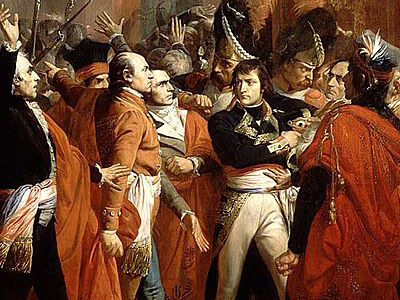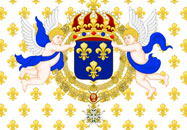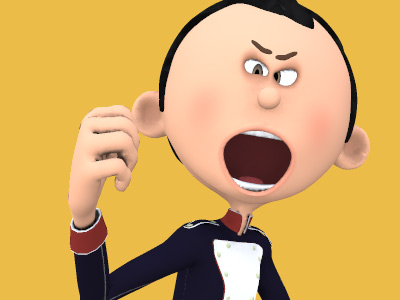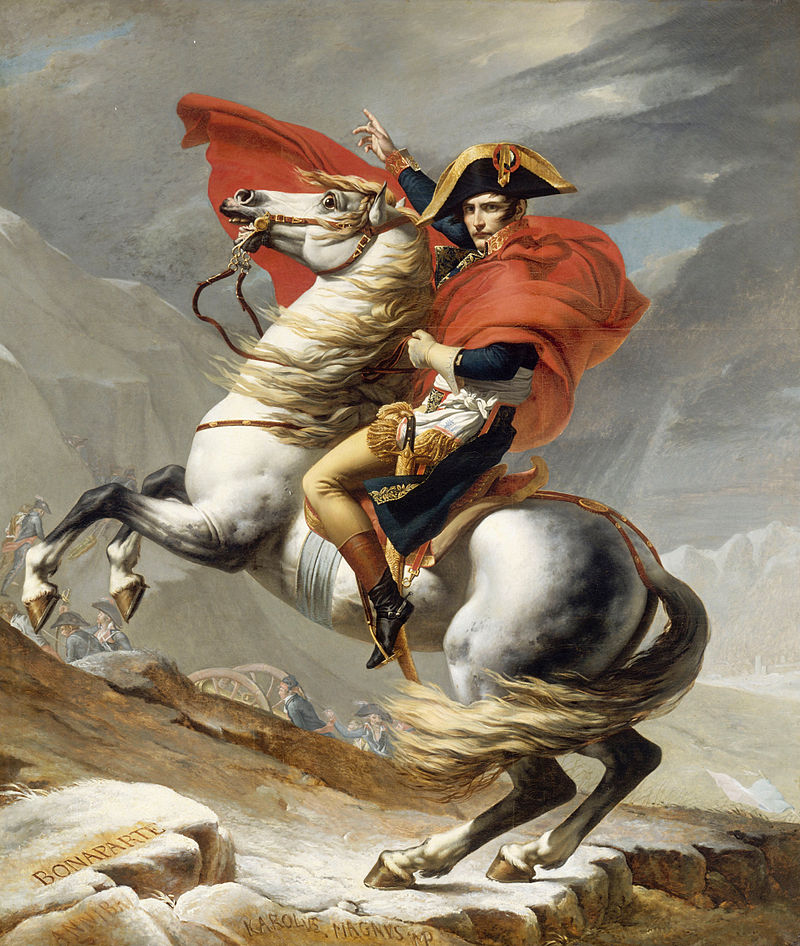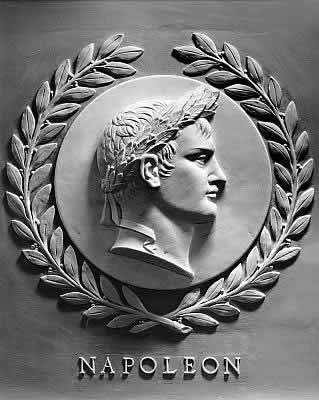Napoleon Bonaparte (1769-1821)
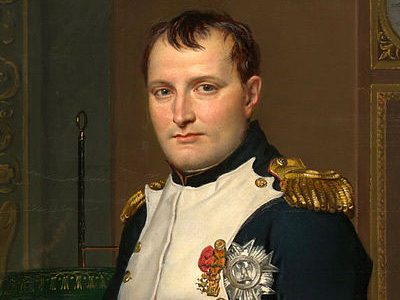
Exile on Saint Helena
Britain kept Napoleon on the island of Saint Helena in the Atlantic Ocean, 1,870 km (1,162 mi) from the west coast of Africa. Napoleon was moved to Longwood House there in December 1815; it had fallen into disrepair, and the location was damp, windswept and unhealthy. The Times published articles insinuating the British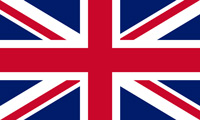 The British Empire, was composed of the dominions, colonies, protectorates, mandates, and other territories ruled or administered by the United Kingdom and its predecessor states. At its height it was the largest empire in history and, for over a century, was the foremost global power. By the start of the 20th century, Germany and the United States had begun to challenge Britain's economic lead. government was trying to hasten his death, and he often complained of the living conditions in letters to the governor and his custodian, Hudson Lowe.
The British Empire, was composed of the dominions, colonies, protectorates, mandates, and other territories ruled or administered by the United Kingdom and its predecessor states. At its height it was the largest empire in history and, for over a century, was the foremost global power. By the start of the 20th century, Germany and the United States had begun to challenge Britain's economic lead. government was trying to hasten his death, and he often complained of the living conditions in letters to the governor and his custodian, Hudson Lowe.
With a small cadre of followers, Napoleon Napoleon Bonaparte (1769-1821), was a French military and political leader who rose to prominence during the French Revolution and led several successful campaigns during the French Revolutionary Wars. As Napoleon I, he was Emperor of the French from 1804 until 1814, and again in 1815. One of the greatest commanders in history, his wars and campaigns are studied at military schools worldwide. Napoleon Bonaparte » dictated his memoirs and grumbled about conditions. Lowe cut Napoleon's expenditure, ruled that no gifts were allowed if they mentioned his imperial status, and made his supporters sign a guarantee they would stay with the prisoner indefinitely.
Napoleon Bonaparte (1769-1821), was a French military and political leader who rose to prominence during the French Revolution and led several successful campaigns during the French Revolutionary Wars. As Napoleon I, he was Emperor of the French from 1804 until 1814, and again in 1815. One of the greatest commanders in history, his wars and campaigns are studied at military schools worldwide. Napoleon Bonaparte » dictated his memoirs and grumbled about conditions. Lowe cut Napoleon's expenditure, ruled that no gifts were allowed if they mentioned his imperial status, and made his supporters sign a guarantee they would stay with the prisoner indefinitely.

Napoleon on Saint Helena
There were rumors of plots and even of his escape, but in reality no serious attempts were made. For English poet Lord Byron, Napoleon was the epitome of the Romantic hero, the persecuted, lonely, and flawed genius.
HISTORY

RESOURCES
This article uses material from the Wikipedia article "Napoleon", which is released under the Creative Commons Attribution-Share-Alike License 3.0.
© Stories Preschool. All Rights Reserved.
